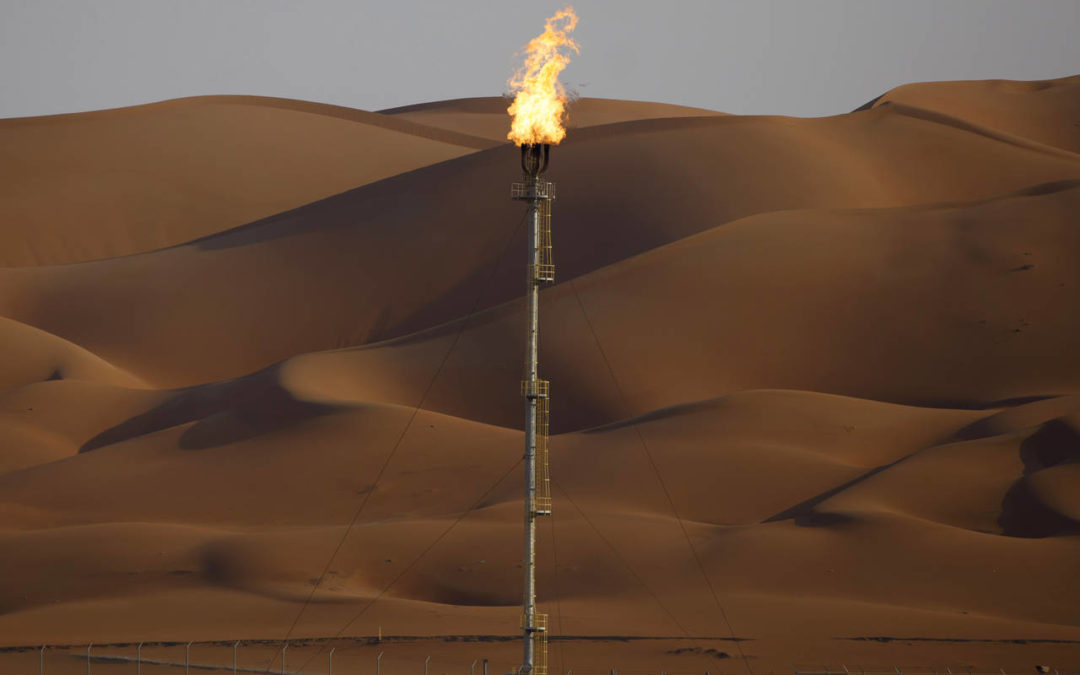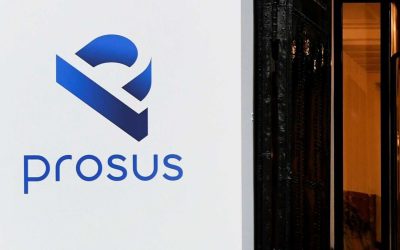The Saudi oil giant has netted an additional $3.8bn from its record initial public offering
Saudi Aramco said it netted an additional $3.8bn from its record initial public offering as it sold more shares to meet investor demand, boosting Crown Prince Mohammed bin Salman’s war chest to reshape the country’s oil-dependent economy.
The state oil giant, officially called Saudi Arabian Oil Co, listed on a local exchange last month after selling three billion shares at 32 Saudi riyals ($8.53) each to raise $25.6bn. It allocated 450 million more shares to investors during the bookbuilding process as part of efforts to support the price for a month in the market.
Since the stock never fell below the issue price, Goldman Sachs, the bank that managed the overallotment, handed over the proceeds to the company’s shareholder, the Saudi government, according to an Aramco statement Sunday.
Aramco’s IPO is now worth $29.4bn. The previous record holder, Chinese online commerce company Alibaba Group, had raised $25bn in 2014.
The stock initially performed strongly, in part because wealthy Saudi families and government funds were asked to buy shares to push the valuation to the crown prince’s coveted $2tn, The Wall Street Journal has reported.
The stock has faded more recently. Aramco’s shares closed down 0.57% at 34.80 riyals on Sunday, above the IPO price of 32 riyals. It hit a high of 38 riyals on December 16, a few days after it began trading on Saudi Arabia’s Tadawul exchange. The company currently has a market valuation of $1.856tn.
Aramco’s share price has faced pressure in the past week over heightened tensions between the US and Iran. The targeted killing of Iranian Major General Qassem Soleimani by the US raised fears of retaliation against an American ally, similar to the September attacks on Aramco facilities. Saudi Arabia blamed Iran for those strikes, a charge Tehran denied.
Tensions have eased slightly following Iranian strikes on US forces in Iraq and a subsequent statement from the White House that it wouldn’t retaliate. Tehran’s admission on Saturday that it mistakenly downed a Ukrainian commercial airliner also has shifted focus away from a potential conflict.
Prince Mohammed has told Saudi officials he wants to de-escalate tensions with regional rival Iran and focus on domestic policy, according to Saudi officials and a person familiar with the matter.
The extra $3.8bn from the Aramco IPO provides more cash to spend domestically and boost the economy.
The Saudi economy contracted 0.46% in the third quarter from a year earlier on the back of low oil prices, according to official statistics. That dip came even as the government initiated reforms that have helped boost non-oil growth, such as issuing tourist visas for the first time.
Prince Mohammed wants his sovereign-wealth fund, known as the Public Investment Fund, to use the Aramco IPO proceeds to invest domestically in new non-oil industries, so economic output isn’t beholden to oil-price swings. The prince appointed the head of the fund, Yasir al-Rumayyan, as chair of Aramco to shepherd the oil giant’s listing, and he’s now responsible for spending the proceeds.
Rumayyan plans to build a series of mega real estate and tourism projects in the kingdom to employ Saudis and draw international travelers. PIF also is working with US firm AMC Entertainment to roll out new cinemas, which have been opened in the kingdom after more than 30 years of censure.
Saudi officials had hoped for significant foreign participation in the Aramco IPO to raise outside capital that could help drive the reforms. Instead, the $1.7tn valuation that the Saudi government set for the share sale was considered too high for many foreign institutional investors and the oil firm, as a result, canceled international marketing meetings.
That left many international banks sidelined as the oil firm switched focus to local investors. Citigroup, Morgan Stanley, Credit Suisse, JPMorgan and Bank of America were set to earn between $3m and $4m for their work, small fees given the IPO was the world’s largest, The Wall Street Journal has reported.
The oil firm appointed Goldman to act as a stabilisation manager for the listing. The bank managed the overallotment, colloquially known as a greenshoe, which gave it the option of buying back stock for 30 days following the December 11 listing to support the price.
A spokesperson for Goldman did not immediately respond to a request for comment on its role as stabilisation manager.
Source: Financial News
Can’t stop reading? Read more
Aquarian Capital to take Brighthouse private in $4.1bn deal backed by Mubadala and RedBird
Aquarian Capital to take Brighthouse private in $4.1bn deal backed by Mubadala and RedBird...
Blackstone and Permira draw early interest from Prosus, EQT and others for €10bn Mobile.de stake
Blackstone and Permira draw early interest from Prosus, EQT and others for €10bn Mobile.de stake...
KKR reunites with BMG to expand investments in high-value music catalogues
Bain Capital prepares Eleda IPO in Stockholm amid strong Nordic infrastructure demand Bain Capital...




